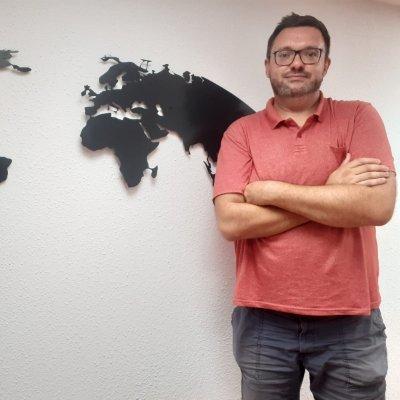
Today, the effects of the health crisis and the energy, climate and financial emergencies make the need for global cooperation and coordinated actions more necessary than ever before, as well as direct actions to end the war.
Against a surging trend in authoritarianism, with growing racist and misogynous speech and constant displays of repression and power abuse –which tends to affect the most vulnerable sectors of the population– and when human rights were already facing a clear regression, the current ongoing war in Europe (to be more the precise, Russia’s invasion of the Ukraine) has made these issues even worse. This International Day of Peace marks seven months since this absurd invasion started, and today it looks like more fuel is being added to the fire.
To avoid discriminatory and racist discourse, one must distinguish the human consequences –just as cruel as in any other conflict – from the consequences in the security and geopolitical context, which are contributing to amplify and grossly magnify the conflict. NATO’s last summit, held in Madrid in June 2022, was used to continue legitimising discourse that strengthens the narrative of a culture of violence and militarism. The so-called need for rearmament, strengthening the military blocks and the constant increases in military expenditure are supported and upheld by many institutions and we must be ready to stand up to this with clear and determined arguments.
At a time when we are trying to end a serious health crisis brought about by the pandemic, but amidst a growing climate (and also financial and economic) crisis, it is more urgent than ever to find global and coordinated solutions to the threats to our survival as a human species. Adopting a critical stance, those of us who consider ourselves as pacifists must continue working to come up with solutions based on a critical awareness and a culture of peace. And we must to this at different levels and paces. We must work towards a model of shared and common security, to generate spaces of trust, to promote the universality and the defence of human rights, pushing for disarmament instead of an arms race and where critical education and values are placed at the centre of this equation. This analytical perspective to study the root causes and to adopt a preventive approach to armed conflicts will need to be boosted and extended, and also criticised, without falling into a state of perpetual pessimism.
With all this in mind, and perhaps to a lesser extent, we must work on other more reactive mindsets and paces. Even if it is true that the best way to end a war is to avoid war in the first place, we must learn to find more reactive answers that come up with more and better alternatives to call into question this false and supposedly single militarised solution. In order to make these processes remain as new mental frameworks, we must, from a nonviolent (all together) stance, support a meaningful participation of civil society (not just disguised in hybrid components of a multilateral system) and push for crosscutting actions – not a merely humanitarian action but also diplomatic, reconstructive and intermediary – and come up with real, transformative and sustainable alternatives.



Add new comment